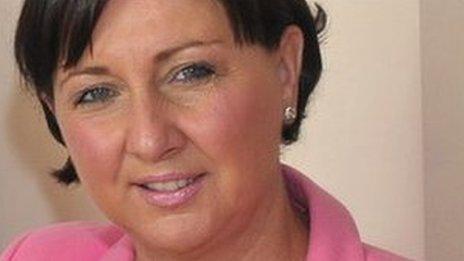NI health reform: More than 50 organisations demand Stormont action
- Published

A new report says says the number of people aged over 65 will increase by 25 per cent
More than 50 health and social care organisations have called on Stormont politicians to take urgent action to transform the health care system.
Their collective views are expressed in a report by the Northern Ireland Confederation for Health And Social Care.
The publication is called 'One Voice - Time for Change'.
It paints a stark picture of the challenges for the health service over the next decade.
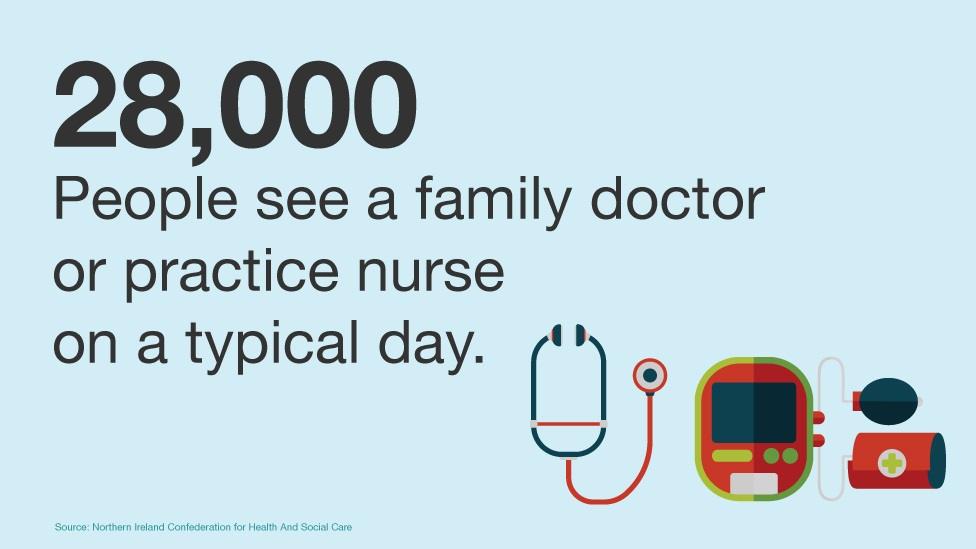
It said the number of people aged more than 65 will increase by 25% and the population aged 85 and over will rise by nearly 50%.
The report also said that costs are rising by about 5-6% each year.
The health budget for 2016/17 is £4.9bn, a rise of only 1% in real terms from last year. In short, the money is not keeping pace.
The Northern Ireland Confederation report is designed to brief politicians ahead of this year's assembly election and it is also likely to inform a political summit on health, due to take place in February.
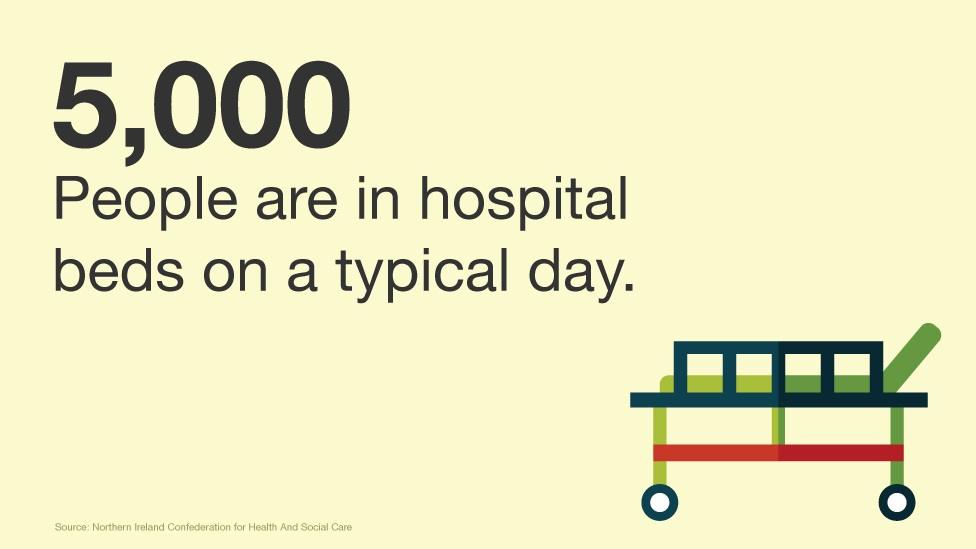
The main priority is to agree an action plan to implement the recommendations of two previous reports on Northern Ireland's health service.
'Transforming Your Care' focused on moving care out of hospitals and into the home, while the Donaldson Report made a number of recommendations, including considering the closure of some hospitals.
This latest report points out that, to an extent, the health service is a victim of its own success.
People are living longer, which is of course a good thing, but it means more resources are needed to cope with chronic conditions and increasing demand for care at home.
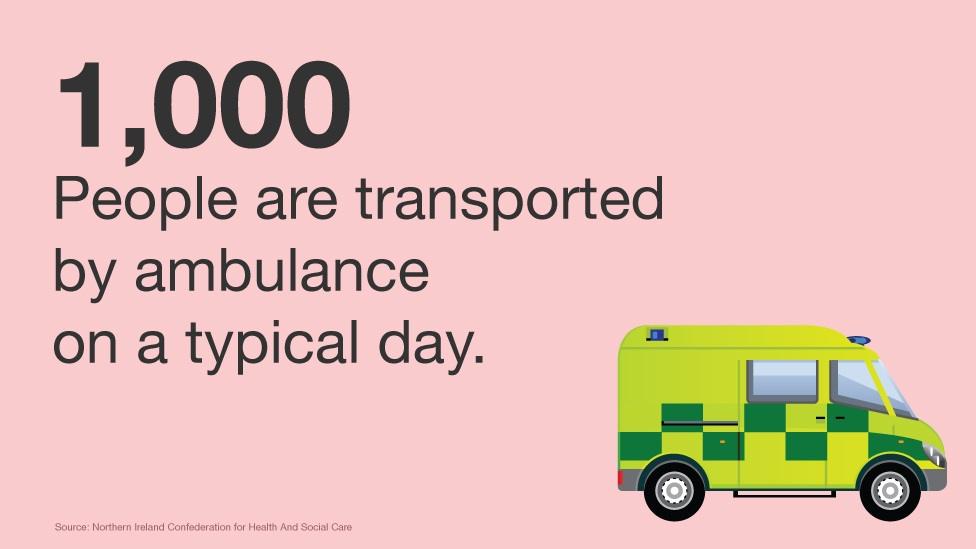
A fifth of Northern Ireland's population are living with a long-term illness and we also have a high rate of mental illness compared with England.
The health service can often seem to have an insatiable desire for more money, and most experts agree no amount of cash will satisfy it.
This report also points to the need for structural change, workforce changes and investment in new technology.
But it acknowledges that "strong, collective political leadership" is needed to drive change.
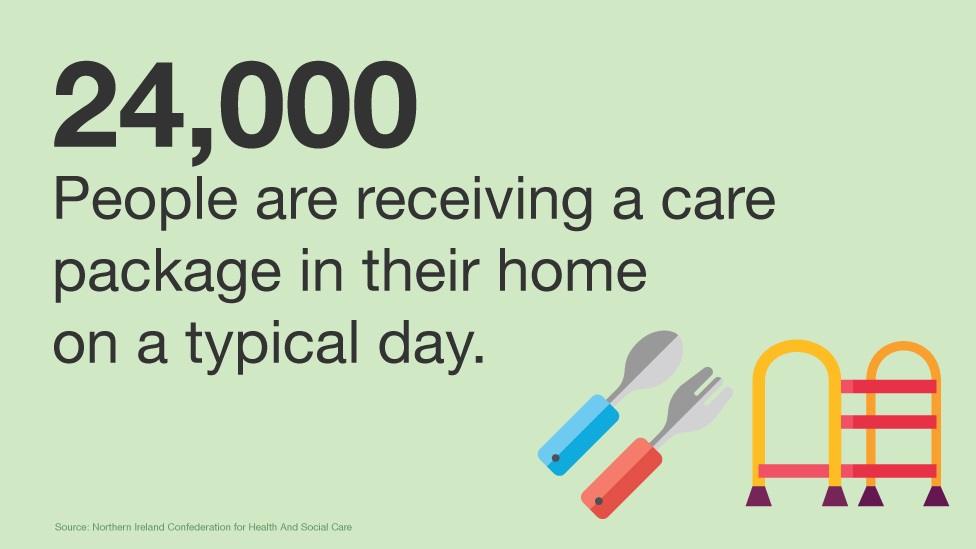
There are thorny issues ahead for politicians - previous reports have said that Northern Ireland does not need 10 acute hospitals - but any decision to close or move services is likely to face opposition.
Workforce changes can also be controversial. One only has to look to the current junior doctors dispute in England over contract changes, which could potentially have an impact in Northern Ireland.
'Can't continue'
Politicians in every UK region speak of a desire to create a truly 24/7 NHS - a system whereby patients get the same care on a Sunday as they do on a Wednesday.
There is also a strong desire to invest in measures that prevent the need for costly hospital admissions.
This latest report is a call to action and some changes are under way in our health service.
Health Minister Simon Hamilton has indicated his intention to scrap the Health and Social Care Board removing unnecessary duplication.
He has also implemented a recommendation from the Donaldson report last year that a panel should be formed to redesign local health care services.
The panel will begin its work within weeks and should report by the summer.
The NICON report also calls for a transformation fund. This is something the minister has already committed to out of the increased budget in 2016/17.
Speaking on BBC Radio Ulster, the chair of the Northern Ireland Confederation for Health And Social Care, Colm McKenna, said: "Sir Liam Donaldson was very adamant in his report that we can have a world-class health and social care system, but we can't do it if we keep doing it the way we're going."
He added that "because of an aging population, demographic changes, the need is growing by five to six per cent per annum - we can't continue with that".
"We're already spending 50% of the total Northern Ireland budget on health and social care, that's likely to grow."
- Published17 December 2015

- Published4 November 2015
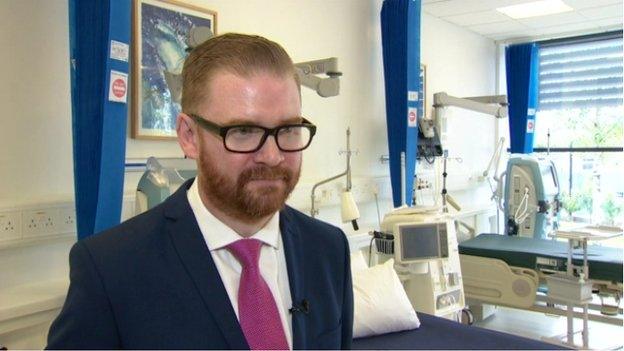
- Published22 April 2015
